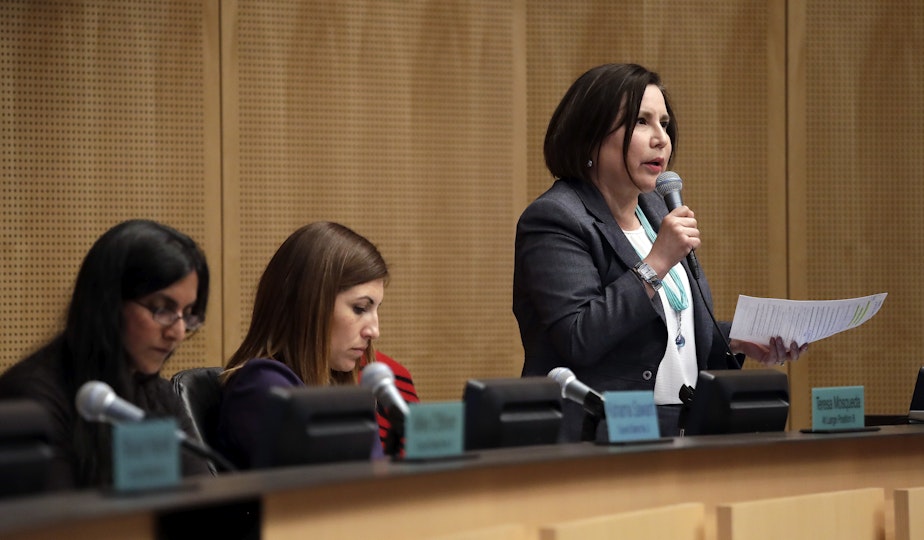Bad apples? Seattle Police 'not a healthy tree' says city council member

Chants of "defund SPD" have become a common message at protests in Seattle, and around the country. For the first time the idea is getting serious attention from the City Council.
The main idea behind defunding police, as council members have discussed it, is taking some amount of funding and shifting that money to programs that benefit vulnerable communities. Such funding could come from controversial features such as military equipment. The aim is to address problems, such as mental health, before police intervention is needed.
It comes amid public unrest over the police killings of Black people, including Manuel Ellis in Tacoma, and criticism over the SPD's use of tear gas, explosives, and other force toward protesters.
But Seattle council members are not approaching the call to defund police the same. Some favor a general 50% cut to funding. Others want to look over the police budget with a fine toothed comb. And at least one council member wants more specifics on which money is cut, and where it goes, before committing to any plan.
Councilmember Debora Juarez says she agrees with the idea of defunding police, in principal. Juarez is a former attorney and judge, and a member of the Blackfeet Nation. She made her case during a city council meeting on Monday.
"When I hear people say there's just a few bad apples on the police force I adamantly disagree with that. It's just not a healthy tree," Juarez said.
Sponsored
"We need to plant a new tree, we have to completely re-imagine, re-vision what community policing is."
Some council members, including Kshama Sawant, are calling for a rapid 50% defunding of the police department. The money saved would go toward social services, health and housing programs, and more, according to Council President Lorena González.
Sponsored
However, Juarez says officials should be thoughtful -- not reactive -- about re-imagining what policing is. To make her point she brought up her own personal experience to colleagues, about weighing the different arguments for and against policing.
"Since I'm older than all of you I get to say this: I have been through a lot more racism and violence than you, so has my family. And the other side that breaks my heart is I have two nephews, one on the Blackfeet reservation and one in Bakersfield California, who are both police officers, and I hear what they say."
She says it's time for thoughtful review of how policing should be used in Seattle.
Meanwhile, Mayor Jenny Durkan has said she will not defund SPD by 50% (or more, as activists are requesting). Durkan says she will, however, put $100 million into community-driven programs for the Black and Brown communities.
The city council plans to review the police budget in the coming weeks, and will do a formal inquest of how the money is spent. Councilmember Teresa Mosqueda said on Monday that she will not be quick to pass the mayor's budget without scrutinizing the police funds. She has called for an inquest into the police budget and said she would like to cut SPD funding "ideally" by 50%.
Sponsored
The calls for defunding the police come as people are outraged, and protesting, over long-term racial injustices and police killings of Black Americans. Any formal proposal will require a city council vote and public review process, and potentially the mayor's support (depending on whether the council proposal wins a veto-proof majority).
Seattle officials are not talking about disbanding the police department, which is proposed in Minneapolis at this time.


